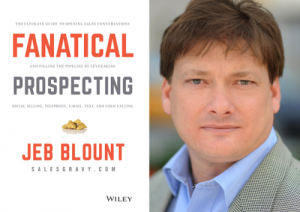AI is great for users, but it’s as bad for its creators’ bottom lines as it is for the environment.
AI is a great deal for the companies that use it. The technology helps them save money via automation and increases efficiencies. However, what about the bottom lines of the companies that create it? Is it a money-losing proposition for them? While the jury is still out on that question, as my very inexpensive Magic 8 Ball likes to say: “Outlook not so good.”
Consider OpenAI, which makes money through licensing its products and services, subscriptions, partnerships, collaborations and investments. It’s in the most impressive startup mode ever seen with investors lining up to throw money at it. Given that its biggest partner is Microsoft there’s little risk the cash will stop flowing.
In 2022, OpenAI had $ 544.5 million in expenses, according to Fortune. “$ 416.45 million on computing and data, $ 89.31 million on staff and $ 38.75 million in unspecified other operating expenses.” In 2023 it had at least $ 1 billion in revenues. Pretty good, right?
Unfortunately, there’s no way in heck its expenses last year were anywhere near the 2022 levels. A user at LessWrong has an incredibly detailed look at OpenAI’s likely expenses. Their conclusion: “OpenAI’s prices seem too low to recoup even part of their capital costs in a reasonable time given the volatile nature of the AI industry. Surely I’m missing something obvious?”
I suspect they are not. Here’s why.
According to the Wall Street Journal, “More than 1.5 million people have used [Microsoft’s GitHub Copilot[ and it is helping build nearly half of Copilot users’ code — because it slashes the time and effort needed to program.”
However, it is so expensive to run that if subscriptions were priced to recoup costs users couldn’t afford it. In the first months of 2023, Microsoft was losing between $ 20 and $ 80 a month per user, the WSJ reported.
My favorite quote from the article, “Microsoft, for example, is using OpenAI’s latest software for its AI features. The version, called GPT-4, is among the largest and most costly AI models available. Using it to summarize an email is like getting a Lamborghini to deliver a pizza.”
So AI is an environmental worst-case scenario and a money pit. That’s not good. Eventually, these bills will have to be paid.
And now, here’s this week’s AI-powered martech releases and features:
- Storyblocks, a stock media platform with video creation and workflow functionality, added new search enhancements powered by AI. It employs an in-house machine learning model based on the BERT framework, allowing the platform to rapidly analyze how users engage with content and refine search result rankings in near real-time. It also identifies the most pertinent thumbnail in video search results.
- Quantum Metric’s Felix AI provides AI-powered customer session summarization. With a flexible API, Felix AI can be extended to the channels and use cases where digital teams need it most including direct integrations into VoC feedback received via text, email or even Slack, giving immediate context on customer feedback; and role-based summaries, including call-center support so agents can understand the customer’s issue before the customer has to explain it.
- Emplifi added 10 AI-powered solutions to help social media marketing and customer care teams increase efficiency and create more productive workflows. They include updates to Emplifi’s AI Composer and the Emplifi Bot, a customer care tool. These include Generative AI intent generation for the Emplifi Bot: dynamic topics and sentiment detection in Emplifi’s social listening tools; visual asset intelligence and tagging; AI composer for community and care solutions; AI-powered case and topic summarization for customer care; AI-powered image quality prediction and scoring; AI-powered review topics; and listening data summarization.
- CoSchedule’s Hire Mia adds free SEO Generators for keyword research and other SEO tasks. It also added content optimization and content creation generation abilities.
- Marketeam.ai’s myElla.ai is an AI agent designed to assist SMBs with social media strategies, content creation and channel management. Shopify, Wix, WooCommerce, WordPress, and Elementor, Ella provides a seamless and scalable solution for businesses to enhance their social media presence.
- Aarki’s new AI platform optimizes bid prices for mobile marketers. It is designed to simplify the advertising process and streamline reaching customers.
- Merchynt’s Paige is an AI-powered marketing assistant for optimizing Google Business Profiles. It is designed to make these SEO capabilities more affordable for SMBs.
- Revenue Grid has two new AI-powered tools. AI Opportunity Summary analyzes CRM data and communications and provides regular reports about what’s happening in the pipeline. AI Forecasting is trained on historical data, current pipeline metrics, and external factors to generate predictive forecasts and AI recommendations to address potential risks and improve forecasting accuracy.
The post AI-powered martech releases and news: April 4 appeared first on MarTech.
MarTech(9)
Report Post







